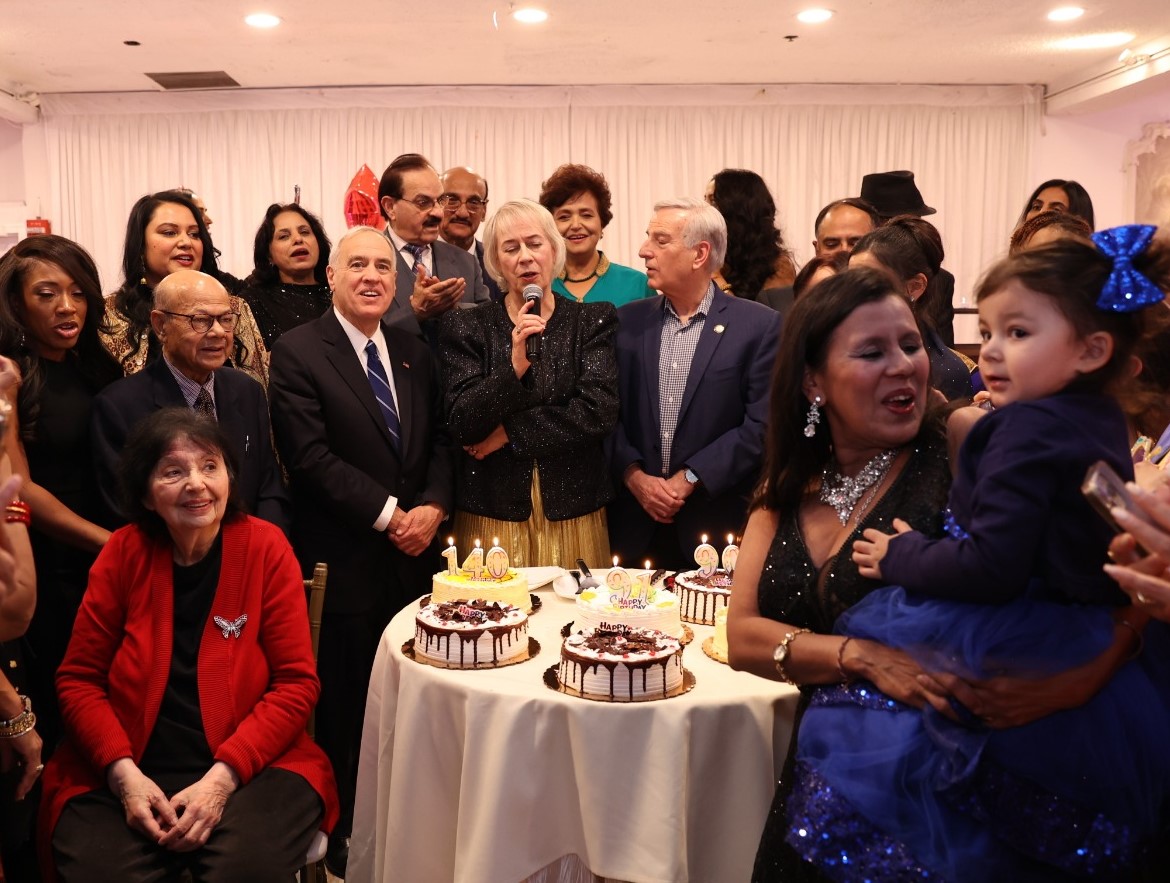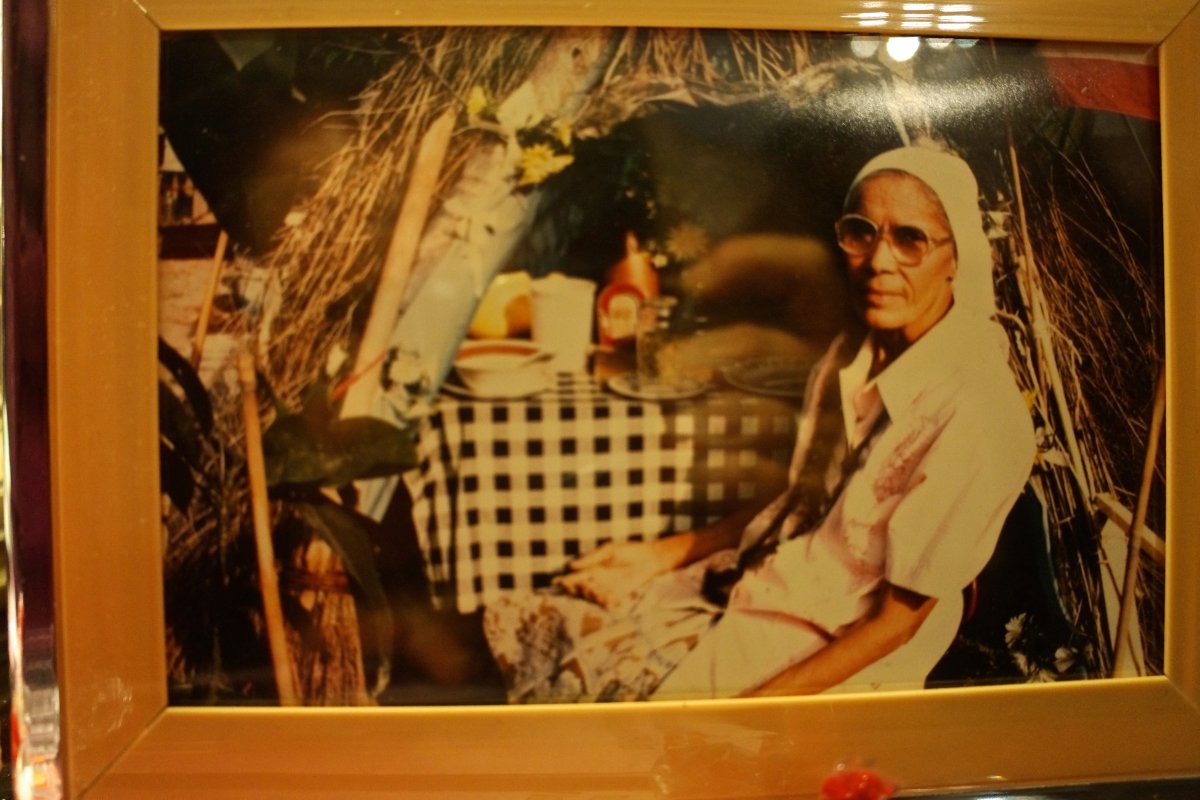
BY SARAH FERGUSON | Scores of family members and admirers filed through the Ortiz Funeral Home on First Ave. last month to pay their respects to Carmen Pabon, the ardent community activist and so-called “Godmother of Loisaida,” who passed away on Nov. 12 at the age of 95.
A mother of eight, Pabon spent five decades on the Lower East Side advocating for the rights of immigrants and the poor from her apartment in the Lillian Wald Houses off Avenue D, and from the community garden she founded on what was once a rubble-strewn lot on Avenue C.
“She was like the consciousness of the Puerto Rican community here,” said Margarita Lopez, the former East Village councilmember, who first met Pabon in the early 1980s, when she herself arrived from the island.
Although not well-known outside of the Lower East Side, Pabon was a key player in the grassroots movement that rose up here in the 1970s and ’80s to confront issues like homelessness, drugs and AIDS.
“We used to have meetings for organizing the community,” Lopez recalled. “Carmen was the most brilliant one of us. It was pure intelligence mixed with compassion. Her humanism was beyond belief.”
“She was a role model,” Lopez added. “Meeting Carmen opened spaces for me in this community that I would never have been able to do myself.”
Lopez’s successor in the City Council, Rosie Mendez, was similarly impressed.
“She was larger than life, she helped everybody,” Mendez said. “When I moved into this neighborhood in the mid-1990s, I was told that Carmen was one of the people I need to meet.”
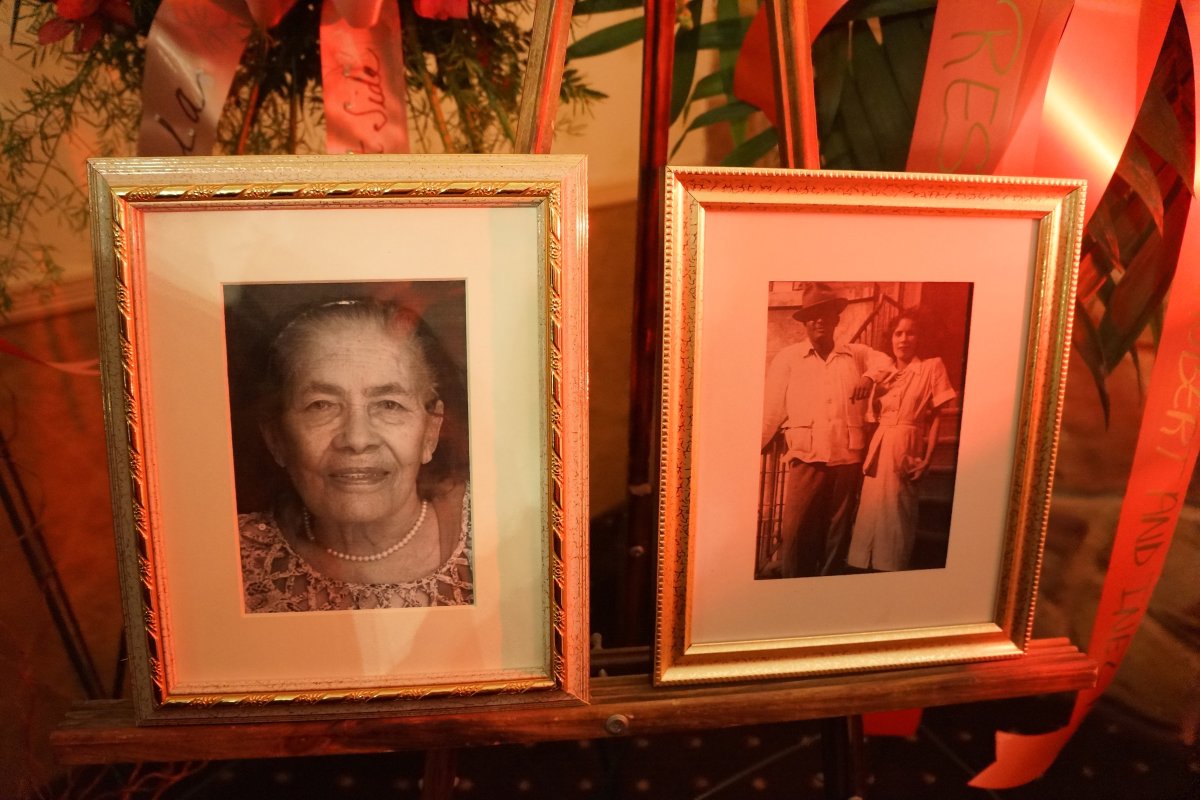
At the entrance to the funeral home, a pair of placards displayed the many awards Pabon received over the years in recognition of her work on behalf of the community.
There was a “Viva Loisaida!” Award for “Lifelong Development” from 1986, and certificates of appreciation from groups such as the Grand Street Settlement Seniors Coalition and the L.E.S. Network on Violence Against Women and Children.
Such achievements, Lopez noted, were all the more remarkable when you consider that Pabon came to this country with little formal education.
“This woman was an environmentalist, a politician, a poet, a humanitarian, a campaigner for women’s rights and the rights of everyone, and she never never give up,” Lopez said.
“Her intelligence and her capacity to understand the political issues and their complexity was something else.”
Pabon was born in 1921 in the mountains of Ciales, Puerto Rico — or perhaps it was 1922: She died with two different birth certificates. She came from a poor family and never made it past the eighth grade.
“Her mother rolled tobacco for 25 cents a day,” said Pabon’s daughter Bruni Pabon, who is now a professor of education at New York University. “Her mother had to send Carmen’s oldest sister to another family to be raised, because she wasn’t able to care for all of her children.”
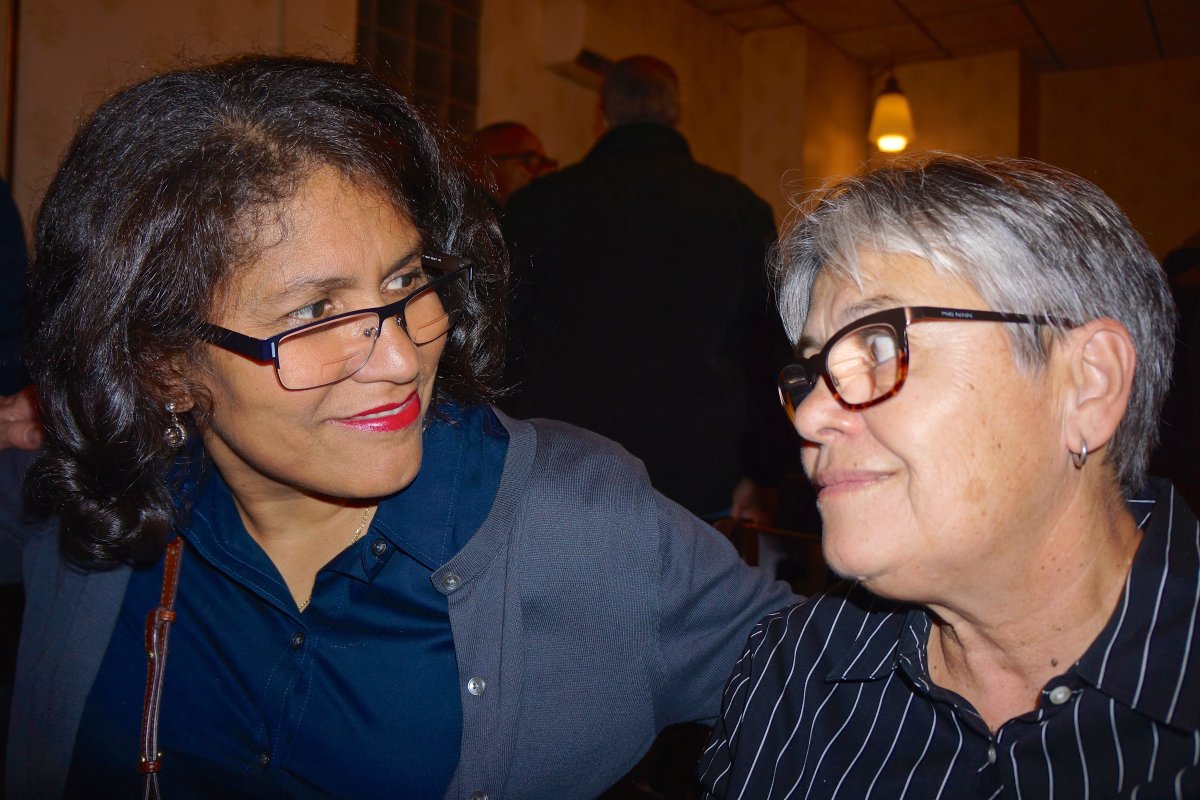
Carmen married young and had several children before migrating to New York in 1946 — part of that great wave of Puerto Ricans who came here in search of opportunity. She and her family lived first in the Bronx and El Barrio before moving in 1955 to the New York City Housing Authority’s Lillian Wald Houses on Avenue D.
She was a devoted mother, sending her kids to Catholic schools and making sure they came home right away to do their homework.
“Even though she was new to this country,” Bruni said, “she managed to navigate the system to maximize whatever the city had to offer for us.”
Pabon enrolled Bruni and her siblings in Fresh Air Fund camps for the summer, along with all manner of after-school and enrichment programs.
“I became a teacher and now teach teach at N.Y.U. It is because of her,” Bruni told the friends and family gathered for her memorial. “I stand on her shoulders.”
“My mother was brave,” concurred her eldest daughter, Minerva Pabon, who is now a health educator. “She allowed me and my sisters to go out into the world and be successful. She gave that to us. She taught me compassion and respect.”
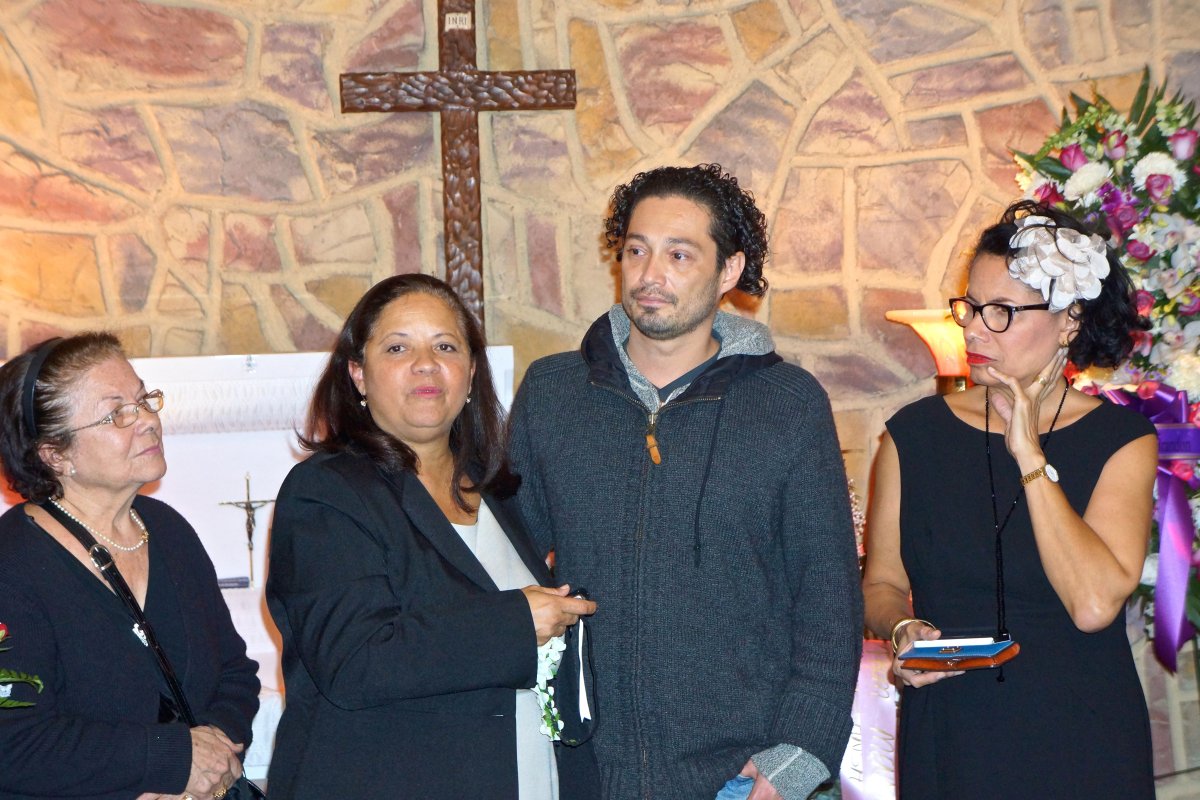
Starting in the 1970s, Carmen began devoting more of her attention to community activism and helping those in need.
She founded the garden, El Bello Amanecer, enlisting neighbors to help dig out the rubble and garbage and plant peach trees. They also built a casita, where Pabon served food to the homeless and poor people who would line up in the morning with carts. The garden became a hub for activism and poetry readings — when Pabon recited her own fiery poems.
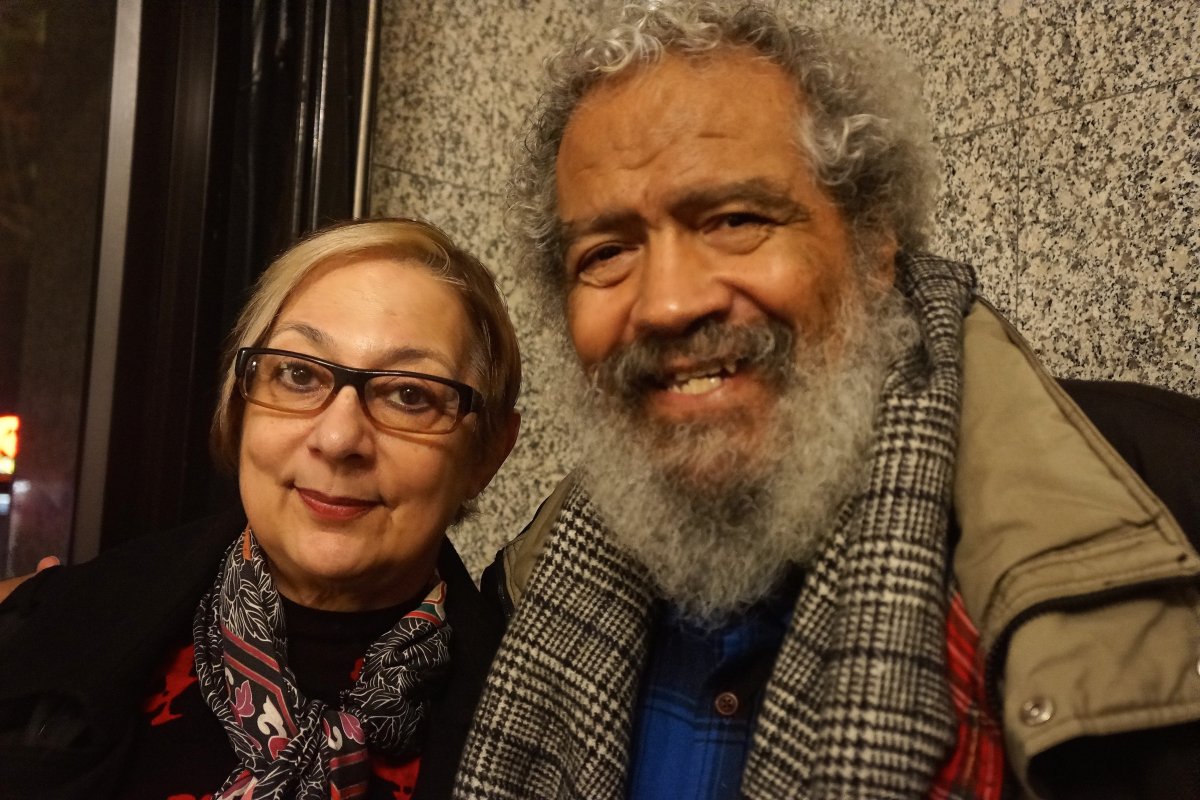
Her children were soon making their own breakfasts as Pabon left early to feed the homeless.
“She drove me and my brother crazy because she was always outside feeding people,” said her son Hiram Pabon. Hiram recalled going out with his brother one morning to look for her in the garden, feeling worried because of some of the sketchy characters that congregated there. One of the homeless men helping Pabon took him aside and said: “Don’t you worry about Carmen. Worry about yourself. We got this.”
She even brought immigrants and homeless people home with her to bathe and sleep when they had nowhere else to go.
“She is like a beacon of light flashing for those who are stranded and lost,” wrote filmmaker Alfredo Irizarry in a 1984 cover story about Pabon for the publication “Loisaida.”
A devoted Catholic, Pabon fought vociferously to save St. Brigid’s Church from destruction, after the Catholic Archdiocese slated it for demolition.
“I remember when the wrecking crew was there destroying the church in the summer of 2006,” Mendez said. “Carmen was there with tears in her eyes. She said to me, ‘We’re losing everything — our houses, our gardens and now our churches. It broke my heart and I said, ‘We have to keep fighting. You’ve been fighting all your life.’ ”
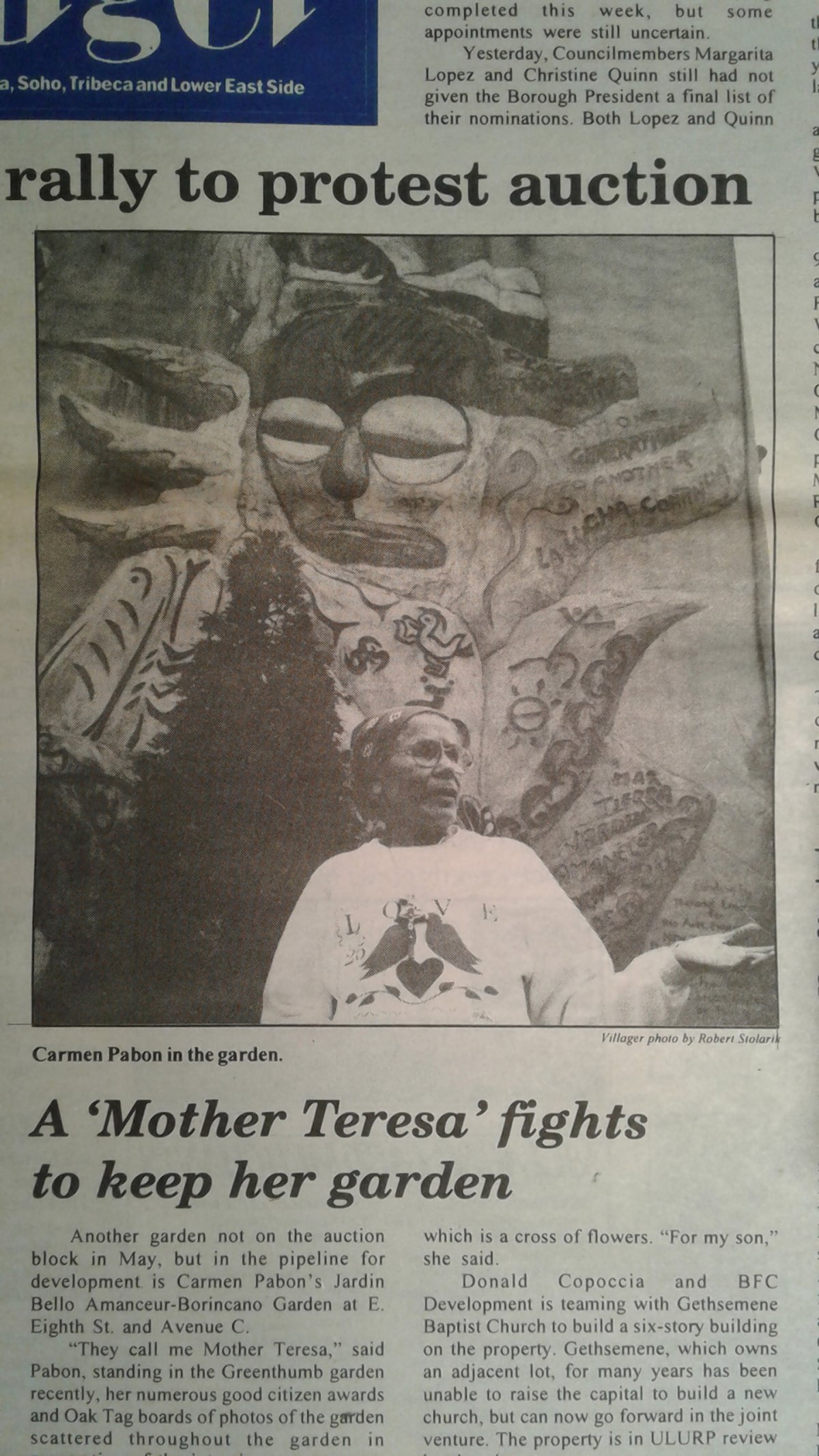
Both Mendez and Lopez said it was significant that Pabon passed away just two weeks after regaining her beloved El Bello Amanecer Boriqueño (the Beautiful Puerto Rican Dawn) garden on Avenue C between Seventh and Eighth Sts., which was closed in 2000 after a fractious battle with the developer next door.
“It was very poignant that she died at the time when the garden was finished,” Lopez observed. “She held on till the end, and even then, she went to open the garden for everyone once and for all. She accomplished it.”
“I think there was a certain amount of healing for her to be able to go back to her garden,” said Mendez, who helped a frail but feisty Pabon cut the ribbon at the opening ceremony on Oct. 26. “She held on for so long, and she was able to go into the garden, and she was really present. I’m really grateful for that.”




